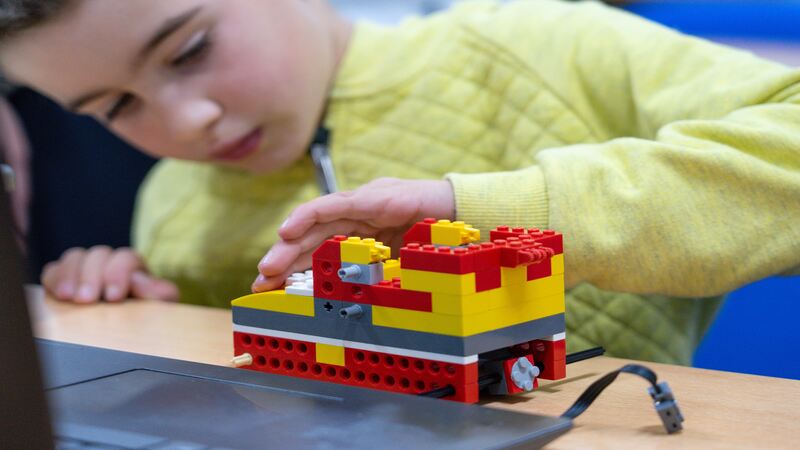
Are our kids capable of dealing with problems that life hands out to them? We see news reports of kids jumping off their 15th floor house because their moms scolded them. We see news reports of kids hanging themselves because they scored less for exams. Do not brush these reports off thinking your child will never do something as drastic and tragic as that. And suicide is not the only way kids who cannot solve problems react. Some kids get depressed. Some kids rebel. Some kids stop eating. Some kids start bed-wetting. Some kids throw and break things in anger. Some kids withdraw into themselves. Most of these drastic behavioral changes are most often a result of not being able to handle problem(s) they face. And you cannot quite blame the kids for that. If you have been a hands-on parent, being there for your child at all times, solving all their problems for themselves, then, no wonder they buckle under pressure when you are not around right? But then again, your kid is a child, you cannot quite let them handle their own stuff from a young age. So what do you do? How do you equip your child with problem solving skills? How do you ensure they face life strongly?
How To Teach My Child Problem Solving Skills?
We have to agree that children need to learn how to solve their problems on their own, and we must start early. In order to enable our kids to make healthy decisions for themselves, we need to teach them a strategy and approach to deal with life’s problems. But as we know, many adults are themselves not sure how to go about it, it is just something we all do, on regular basis, without bothering how we do it. As parents, we need to equip our kids to KNOW how to deal with problems in life.
6 Tips To Develop Problem Solving Skills In Your Kids
The following 5 tips might help:
-
- Identifying the problem: Most people agree that identifying the problem is half the job done. Make sure that your child understands when there is a problem, and he is able to state it clearly. If he can come to you and say “I am being bullied in school” or “a senior is forcing me to do his assignments”, then that is a huge win. He is able to identify the problem and he is able to talk about it to you – this means he is now ready to solve the problem! Not to mention the relief he might have felt when he admitted it to you!
- Evaluating the problem: Every problem can have multiple perspectives. A certain level of critical thinking is necessary to view the problem from different angles, break it down to smaller parts and analyze them. By breaking down the problem, you make it easier to solve. You can develop critical thinking in your children by asking them open ended questions about the problem

- Figuring out a solution: Every problem can be dealt with in different manners. You should teach your child not to always go for the first solution that comes to the mind, or the easiest solution. Ideally, multiple solutions need to be thought of. The benefits and consequences of each of the solution should be listed out. And then, only then, pick a solution which has most pros and least cons. As a parent, you can be your child’s brainstorming partner in this exercise. A certain level of creative thinking is necessary to come up with both mundane and out of the box solutions
- Facing consequences: Kid them not. All problems and solutions have their own consequences. Some minor, some major. When they pick a way to solve a problem, they should already know the possible consequences. This will help them to be prepared and not caught offhand. You also need to prepare them to face the consequences, whatever they are. The child should feel accountable and responsible for his own actions. Consequences make great teaching moments for you. You could ask them on hindsight if they would have picked a different solution. Learning from their own actions will go a long way in making them more perceptive and stronger
- Being a good role model: If you have had a bad day at work, and if you come home all grumpy, then you are not handling your own problems well, let alone teaching your kids how to do it! It is important that you solve problems in a mature way and talk about it to your child. When they see you, as a parent, solving problems in a systematic way with a cool head, they watch and learn!
- Know when to step back: One of the biggest advice we have for the parents is this – STEP BACK. Whether it is a fight with a friend or a jigsaw puzzle, you might find it tempting to jump in and solve the problem for your child, lest your child breaks his heart over it. Do not do this. You are capable of solving such a problem with ease is because you are older, have experience and are worldly wise. And unless you let your child find a solution for it by himself, he will not be any of those! Further, if you step in to solve their problems, it also sends a message that you are not confident of their abilities. It also stifles their critical and creative thinking. It also makes them forever dependent on you. We are sure you do not need more reasons to step back and watch your child solve his own problems. Read more about Helicopter Parenting
